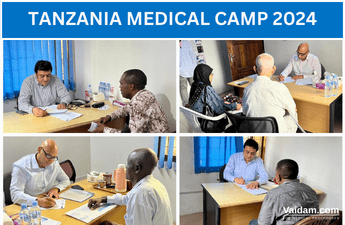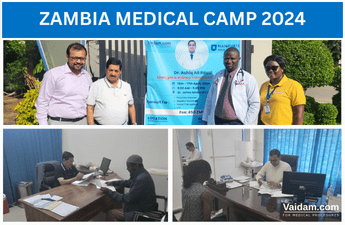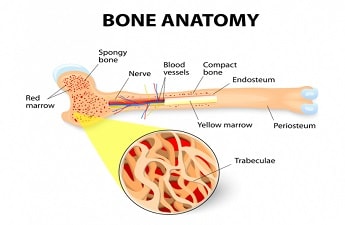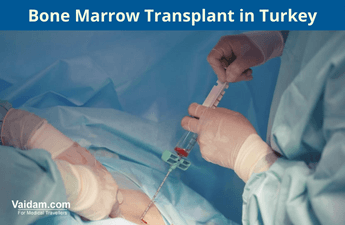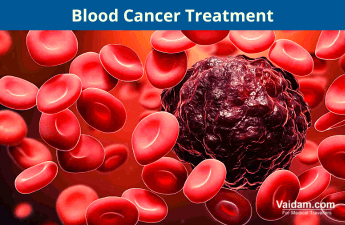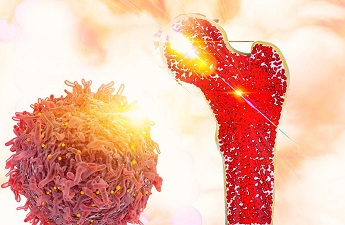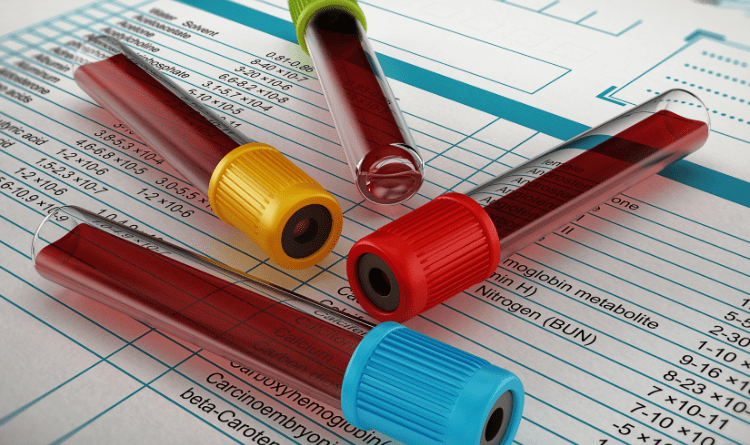
Hematology is the study of blood and blood diseases, which helps in the diagnosis of a wide range of blood disorders. From inflammation and anemia to clotting abnormalities and leukemia, hematological tests help diagnose all blood disorders.
Hematological tests can help diagnose the following disorders:
- Anemia
- Infection
- Hemophilia
- Blood-clotting disorders
- Leukemia
In this blog, we will discuss the common hematological tests routinely performed to diagnose blood disorders.
Get in Touch with Medical Experts
Complete Blood Count (CBC)
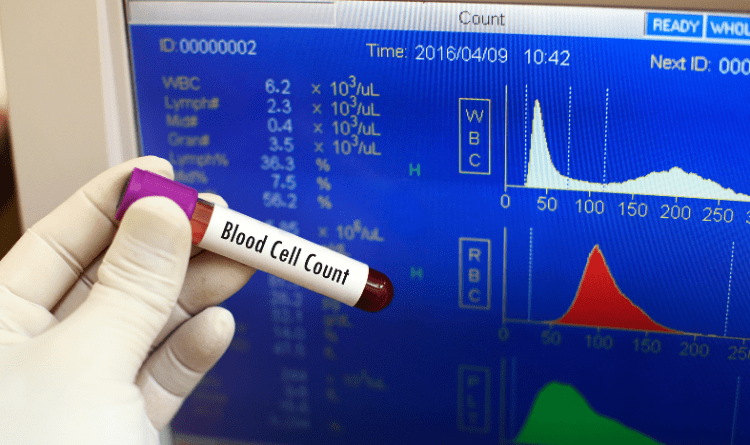
CBC is one of the most common and frequently recommended hematology tests by specialists. A CBC measures the number of red blood cells (RBCs), white blood cells (WBCs), and platelets.
Abnormal levels of these components may indicate the following:
- Nutritional deficiencies, including vitamin B6 or B12
- Clotting problems
- Anemia (iron deficiency)
- Infection
- Immune system disorders
- Blood cancer
Based on your results, your doctor will order follow-up tests to confirm abnormal levels and a possible diagnosis.
Why is CBC Performed?
A CBC is performed for the following reasons:
- It can be part of general health check-ups and look for conditions such as leukemia or anemia.
- It can help find the cause of symptoms such as weakness, fatigue, and fever.
- It can identify the cause of swelling and pain, bruising, or bleeding.
- It keep an eye on conditions that affect blood cell counts.
- It monitors treatment with medicines that affect blood cell counts and radiation.
Flow Cytometry

Flow cytometry is a laser-based technique that detects and analyzes the chemical and physical characteristics of cells or particles. It is most commonly used to evaluate your body's bone marrow, peripheral blood, and other fluids.
What is Flow Cytometry Used For?
Flow cytometry for a number of purposes, including:
- Cell sorting
- Cell counting
- Determining cell function
- Determining cell characteristics
- Detecting microorganisms, such as bacteria, fungi, or yeast
- Diagnosis and potential treatment of cancers of blood and bone marrow
- Finding biomarkers (characteristics that indicate normal function)
How are Flow Cytometry Results Interpreted?
Your pathologist will consider the results of flow cytometry analysis and your medical history, symptoms, and most recent physical examination.
Abnormal results are usually found in the presence of:
- Non-Hodgkin lymphomas (both B-cell and T-cell)
- Multiple myeloma
- Acute myeloid leukemia
- Chronic lymphocytic leukemia (CLL)
- Acute lymphoblastic leukemia (ALL)
Bone Marrow Test
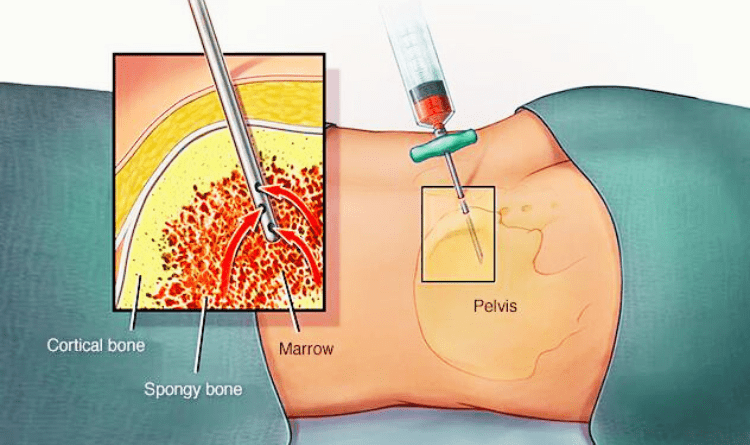
A bone marrow test includes bone marrow aspiration and bone marrow biopsy. These procedures collect and examine bone marrow, which is a spongy tissue inside some of the larger bones. Bone marrow aspiration and biopsy show whether your bone marrow is healthy and able to make normal amounts of blood cells.
Bone marrow aspiration can be performed alone, usually combined with bone marrow biopsy. Together, these procedures are referred to as bone marrow tests.
What is the Procedure for a Bone Marrow Test?
- The bone marrow aspiration is performed first.
- The doctor makes a small incision in the skin.
- The doctor inserts a hollow needle through the incision into the bone and the bone marrow.
- A syringe attached to the needle is used to draw a sample of the liquid part of the bone marrow.
- The aspiration takes a few minutes.
- Several samples may be taken for better results.
- Rarely, if fluid can not be withdrawn, the needle is moved for another attempt.
- A bone marrow biopsy is performed after this.
- The specialist uses a larger needle to withdraw a solid bone marrow tissue sample.
Why is the Bone Marrow Test Performed?
Your doctor may order a bone marrow test if blood tests are abnormal or do not provide enough information about the suspected issue.
Your doctor may perform a bone marrow test to:
- Determine the stage or progression of a disease
- Diagnose a condition involving the bone marrow or blood cells
- Investigate a fever of unknown origin
- Determine whether iron levels are adequate
- Monitor treatment of a disease
A bone marrow test may be used for the following conditions:
- Blood cell conditions where too few or too many of certain blood cell types are produced, such as leukocytosis, leukopenia, thrombocytopenia, thrombocytosis, pancytopenia, and polycythemia
- Anemia
- Cancers such as lymphoma, leukemia, and multiple myeloma
- Hemochromatosis
- Cancers that spread from another area (such as the breast) into the bone marrow
- Fevers of unknown origin
Kidney Function Test (KFTs)
KFTs comprise urine or blood tests that evaluate how well your kidneys are working. Most of these tests measure glomerular filtration rate (GFR), which assesses how efficiently the kidneys clear waste from your system.
Why are KFTs Performed?
Comorbidities, such as diabetes or high blood pressure (hypertension), may affect the functionality of kidneys. Your primary healthcare provider may use KFTs to assess these conditions.
If you have any of the following symptoms, you may need a KFT:
- Blood in your urine (hematuria)
- Painful urination (dysuria)
- Frequent urge to urinate
- Problems with starting to urinate
What are the Types of KFTs?
Your doctor may order the following tests to estimate your GFR:
- Urinalysis: A urinalysis screens for protein (microalbuminuria) and blood in the urine. The test may be repeated to check if the results are similar. You may be asked to provide a 24-hour urine collection sample, which helps doctors analyze how fast a waste product (creatinine) is clearing from your body.
- Serum creatinine test: This test examines whether creatinine is building up in your blood. A high level of creatinine may suggest a kidney disorder. A creatinine level higher than 1.4 mg/dL for men and 1.2 mg/dL for women is a sign of a kidney problem.
- Blood urea nitrogen (BUN): The BUN test checks for waste products by measuring the amount of nitrogen in the blood. Not all elevated BUN levels are due to kidney damage. Common medications, such as large doses of aspirin and some antibiotics, can also increase BUN levels. A BUN level lower than 7 mg/dl and higher than 20 mg/dL could suggest different health problems.
High-resolution Computed Tomographic (HRCT) Scan
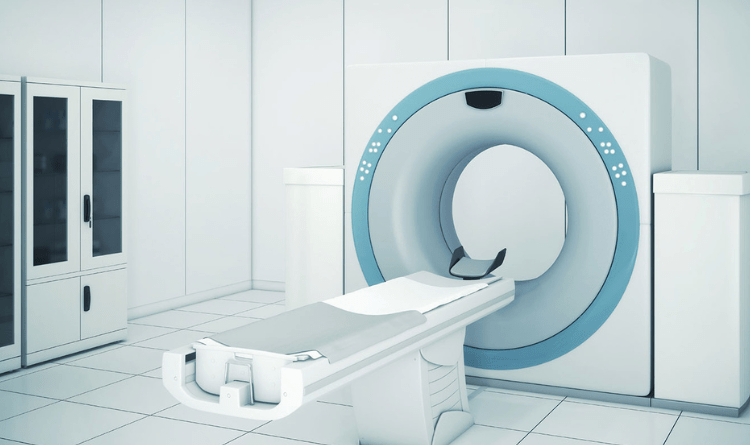
HRCT scan is a cross-sectional imaging technique used for the prognosis and diagnosis of various health ailments. Most commonly, an HRCT scan is used for lung disease. HRCT scan is usually performed using a conventional CT Scanner, but the imaging parameters may vary.
A person should go for an HRCT Scan in the following conditions:
- Muscle disorders, fractured bones, and bone tumors can be diagnosed using medical imaging
- Pulmonary disorders and sinus problems can also be identified with these scans
- Medical imaging is also used to guide surgical procedures, biopsies, and radiation therapy
- It helps locate the exact positions of tumors, blood clots, infections, internal bleeding, or injuries
- Bone diseases can be checked using these scans, and various body organs can be examined for regular check-ups.
HRCT scan is performed for the following conditions:
- To detect airflow obstructions in the lungs, evaluate lung function
- To evaluate the risk of developing diffuse lung disease
- To observe any abnormal growths in the lungs
- In patients with hematological malignancies who present with fever and lung infiltrate suggestive of mold disease
- To determine the best site for a lung biopsy, if required
Human Leukocyte Antigen (HLA) Typing Test
HLA typing genetic test matches patients and donors for cord blood, bone marrow, or organ transplants. HLA are proteins that the immune system uses to identify if a particular cell belongs in your body or not.
HLA typing helps identify when potential tissue donors are a good match for recipients, improving the likelihood of a successful transplant.
What is the Purpose of the HLA Typing Test?
HLA typing is most commonly used to find out which people can provide tissue donations that allow for the safest transplants. The following types of transplants are usually performed:
- Stem cell transplants: Stem cell transplants from peripheral blood or bone marrow are used to treat certain types of genetic blood disorders and blood cancer.
- Solid organ transplants: A solid organ transplant may be necessary due to severe damage caused by trauma, infection, autoimmune disease, genetic disorders, toxins, or other factors.
How is the HLA Typing Test Done?
A tissue sample is used for the HLA typing test. The sample is taken with a swab on the inside of your cheek, or a blood sample can be drawn from a vein in your arm.
When comparing the results of prospective donors and recipients, it is important to note that if a person is HLA antibody-positive, it is not a good match. HLA antibodies are designed to identify and attack specific proteins that the body considers foreign. If the proteins and antibodies of a donor and recipient do not match, the body is likely to reject the organ, making transplantation unsuccessful.
To Conclude
Hematological tests are significant in diagnosing and identifying blood-related conditions and aiding in treatment procedures. It is essential to consult a hematologist immediately if you notice any changes in your body that might indicate a blood disorder.



